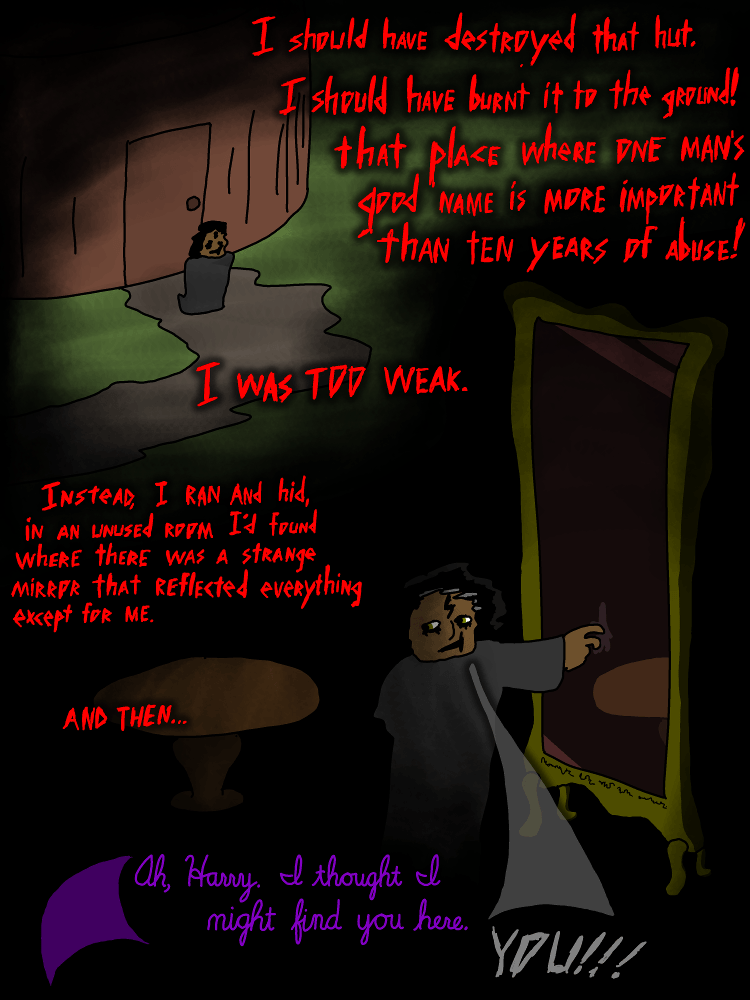Usually, if a character destroyed a building in a fit of rage, we'd consider that to be a character flaw. Here, Harry considers the fact that ze didn't do that to be a character flaw!
If a character does something that you think is a bad idea, but they disagree and think it was fine, then it's not “a character flaw”, it's just “somebody doing something you don't like”.
I personally don't find the concept of “character flaws” to be a useful concept, in general. Categorizing people's attributes into “good” and “bad” is an oversimplification that doesn't really help me understand either the attributes or the people. I sometimes simplify things when I'm trying to decide what to do in real life, but when I'm building a story, the important thing to do is to understand deeply.
Approximate readability: 10.96 (610 characters, 137 words, 6 sentences, 4.45 characters per word, 22.83 words per sentence)
 encourage me
encourage me


Comments